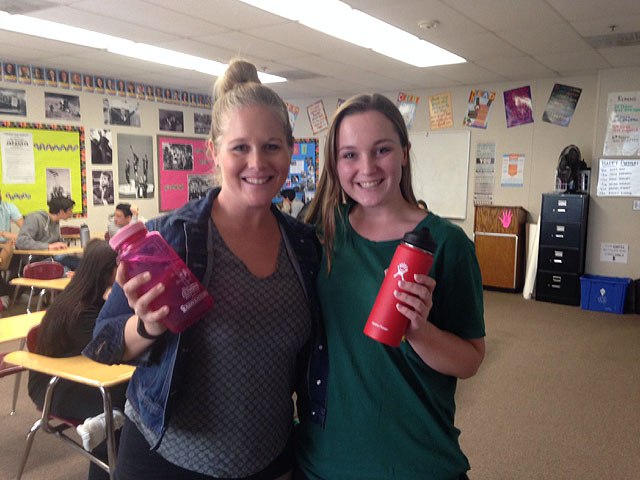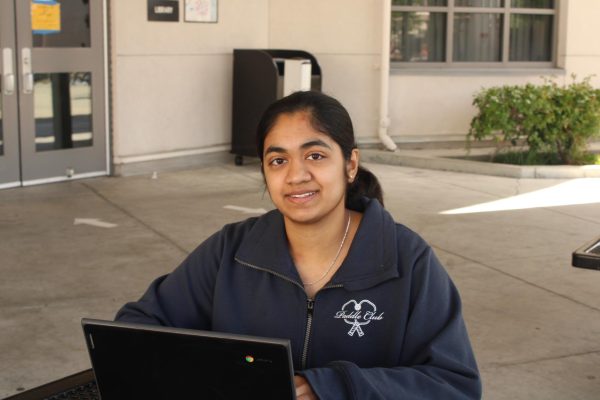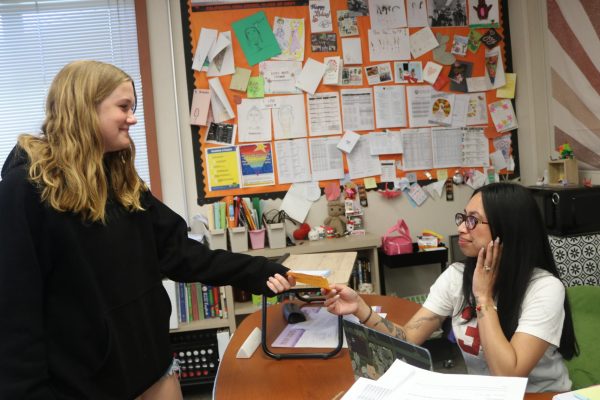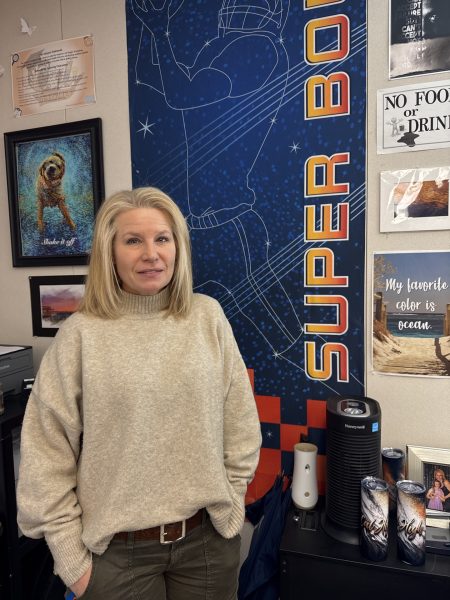Reusable water stations could be installed at Cal
Senior leads charge for new water filters so all can drink cleaner water
Photo courtesy of gofundme.com
Senior Ellen Lyons, right, and Principal Sarah Cranford both pose with their water bottles, which students will be able to soon fill on campus at Flowater reusable stations, such as the one pictured right.
al High senior Ellen Lyons started a GoFundMe to install a water bottle refilling station called a Flowater on campus.
The student-initiated campaign is the brainchild of Lyons, who saw the need to have a place where students can fill up their water bottles.
“I get really thirsty at school and the drinking fountains are really gross,” Lyons said.
While the GoFundMe project is being used to help fund the installation of one station, which costs $3,500, Principal Sarah Cranford has agreed to have the school pay for a second one if the money for the first one is raised, according to the GoFundMe page.
Cranford declined comment for the story.
Students and staff on campus have mixed reactions about the installation of the Flowater machines.
“It’d be a great installment, for the students to be able to need less plastic water bottles,” said art teacher Michelle Stephanos.
While some other responses were mildly positive, most were simply neutral.
“We already have water fountains,” said senior Mathew Mao. “It seems kind of useless, but if they install it, cool, whatever.”
Some students believe that installing Flowater is a waste of time and resources.
“So it’s just a water fountain for filling bottles? OK, that’s kind of a waste of money,” said junior Paloma Maiorano.
The GoFundMe project was able to reach its goal of $3,500. While exact dates for construction and installation are unknown, it is to be expected that by the next school year, it will be fully completed and ready for use, Lyons said.
“I’m am really glad that the goal was met,” said Lyons. “I am really excited because we got donations from school related organizations and staff because it shows the need for this flowater refill stations.”
Lyons hopes from this project being completed, students can have easy access to cool, refreshing water.
The school is still in the early stages of planning where on the first and second floors of the main building the refill stations will be located, Lyons said.
“A lot of it is still up in the air,” Lyons said. “But it is definitely going to happen.”
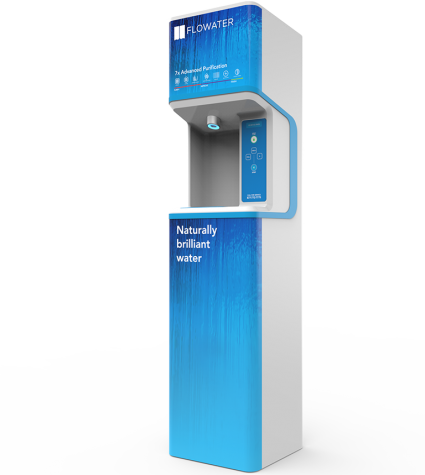
According to the official Flowater website, the stations use a coconut carbon filtering system that removes impurities such as dirt, bacteria, and rust that can often be found in regular tap water. The filters also have electrolytes such as calcium and potassium to be able to increase the pH to as pure a water as possible.
The stations are also made to be as low maintenence as possible, making it so that the stations will eventually be able to pay for themselves many times over with the benfits that will be rendered.
The two stations will encourage students to bring reusable water bottles to school, decreasing the use of plastic bottles.
